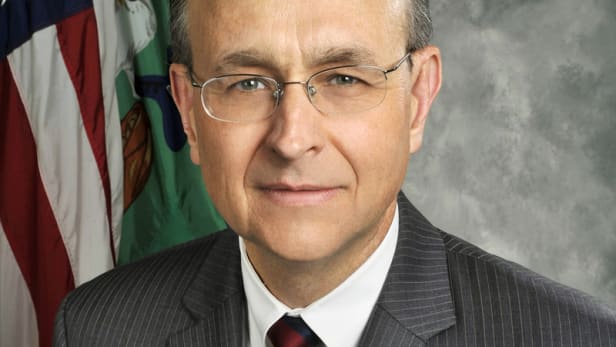By Sophie Edwards
 |
| Nathan Sheets, U.S. Treasury under secretary for international affairs. Photo by: U.S. Treasury |
The U.S. Treasury official for international affairs said it was important for the U.S. to “remain active” in multilateral institutions including the International Monetary Fund, World Bank, G20 and G7 during the presidency of Donald Trump.
Nathan Sheets was speaking at the Carnegie Endowment for International Peace in Washington, D.C. His comments come amid fears the incoming administration could scale back U.S. support for multilateral institutions.
Trump has made threats against the United Nations, calling it a “club” for people to “have a good time.” Republican politicians have also put forward bills to reduce U.N. funding, or defund the U.N. entirely, unless the December 2016 U.N. Security Council resolution condemning Israeli settlements is reversed.
Sheets, whose role was to advise the treasury secretary on international economic affairs, including working with multilateral development institutions, described the IMF and the World Bank as “tools” that the U.S. will continue to “deploy” in the years ahead.
“When we think about what we can achieve with these multilateral mechanisms of engagement, the benefits from them are very, very significant and I think that that is clear to me, and that’s likely to be clear to others going forward,” he added.
As yet no replacement for Sheets has been named. The treasury secretary nominee is Steven Mnuchin, a former Goldman Sachs investment banker.
Discussing the World Bank, the under secretary said the institution is at the “forefront” of U.S. “efforts to address global poverty,” and referred specifically to December’s replenishment round of the World Bank’s International Development Association fund — which supports the bank’s work in the poorest countries — as an indicator of U.S. support for the institution.
More than 60 donor and borrower country governments, including the U.S., pledged a record $75 billion in IDA funding, in the last round.
Historically the U.S. has been the largest IDA contributor and is by far the biggest World Bank and IMF shareholder, wielding considerable influence over the institution’s strategy and policy and, controversially, over the appointment of the World Bank’s president.
Despite this fact, some “uncertainty” surrounds U.S. support for the institutions going forward, which could be demonstrated in the new administration’s refusal to honor the IDA commitment set by its predecessor, according to Scott Morris, senior fellow at the Center for Global Development.
The actual contribution will have to be approved by a Republican-controlled Congress, which is likely to take place in March, and so it would in theory be possible for the support to be scaled back or withdrawn.
However, although U.S. commitments frequently “never quite meet the full commitment pledged,” Congress is likely to meet the outgoing administration’s IDA pledge in order to maintain the United States’ reputation and leadership role, Morris said.
Sheets also praised the World Bank for its recent reforms, which he said have enabled the institution to spend its IDA balance sheet “more effectively.”
“Given the obvious constraints that we face in the U.S. and globally in financing multilateral development banks, it’s imperative that these institutions use the resources they have in as an effective manner as possible and we are seeing those kinds of reforms at the World Bank,” he said.
The incoming under secretary for international affairs is a “key appointment” and will have “very clear reach” to define the terms of the U.S. relationship to the MDBs, Morris said.
“It’s a highly consequential position which defines U.S. economic engagement in the world and is the focal point for policy engagement internationally,” he said.
It can also be a difficult position to fill — the post was vacant for a year before Sheets took office in 2014.

No comments:
Post a Comment